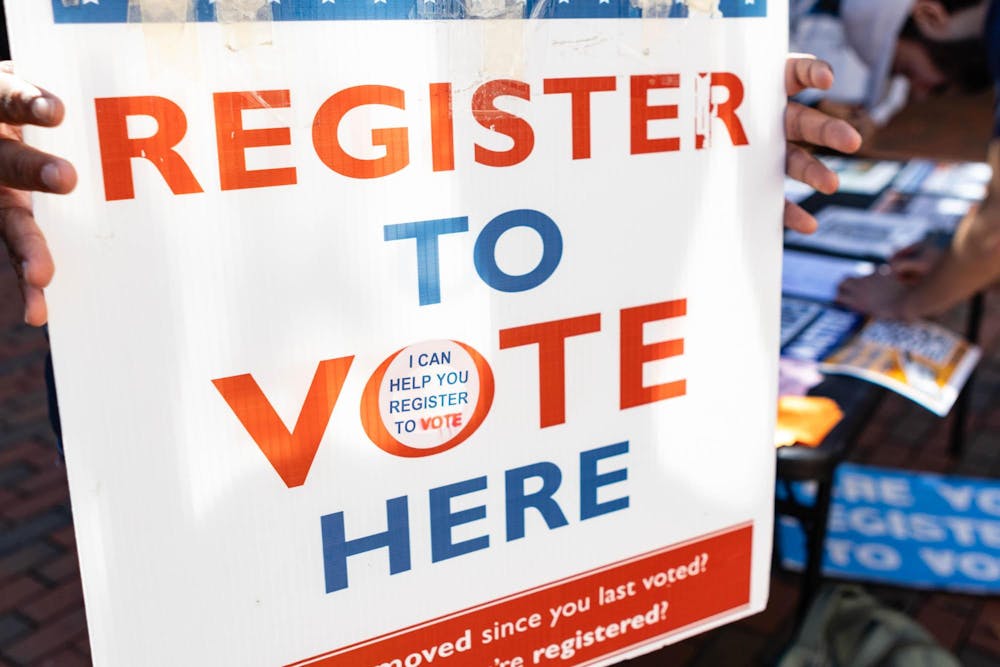When N.C. voters cast their ballots on Nov. 5, they will be presented with a range of familiar choices: candidates for local, state and national office.
The part of the ballot that might not look so familiar? The referendums: a series of legislative measures requesting citizens' approval. What follows is an explanation and endorsement of the referendum measures.
First, voters will be asked to state “For” or “Against” regarding the following:
Constitutional amendment to provide that only a citizen of the United States who is 18 years of age and otherwise possessing the qualifications for voting shall be entitled to vote at any election in this State.
The current language in the N.C. Constitution reads as follows: “Every person born in the United States and every person who has been naturalized, 18 years of age, and possessing the qualifications set out in this Article, shall be entitled to vote at any election by the people of the State, except as herein otherwise provided.”
We are concerned with two additional implications of this referendum. Firstly, the removal of the word “naturalized” from the current Constitution can only set a precedent against non-U.S. natives in the voting process.
Secondly, the wording “otherwise possessing the qualifications for voting” implies a continuation of stringent state requirements for voter ID. Such standards will unjustly target young, lower-income and unhoused voters, each of whom are more likely than other demographics to lack formal identification.
Finally, requiring voters to be 18 years of age eliminates future possibilities of youth voting in local, school board or primary elections in North Carolina, as practiced in other states. Allowing youth to vote in relevant elections helps build a habit of engaged citizenship.
At best, this proposal will prove fruitless, but at worst, it lays the groundwork for a xenophobic and exclusionary agenda, driving unnecessary mistrust into our electoral systems and communities.



